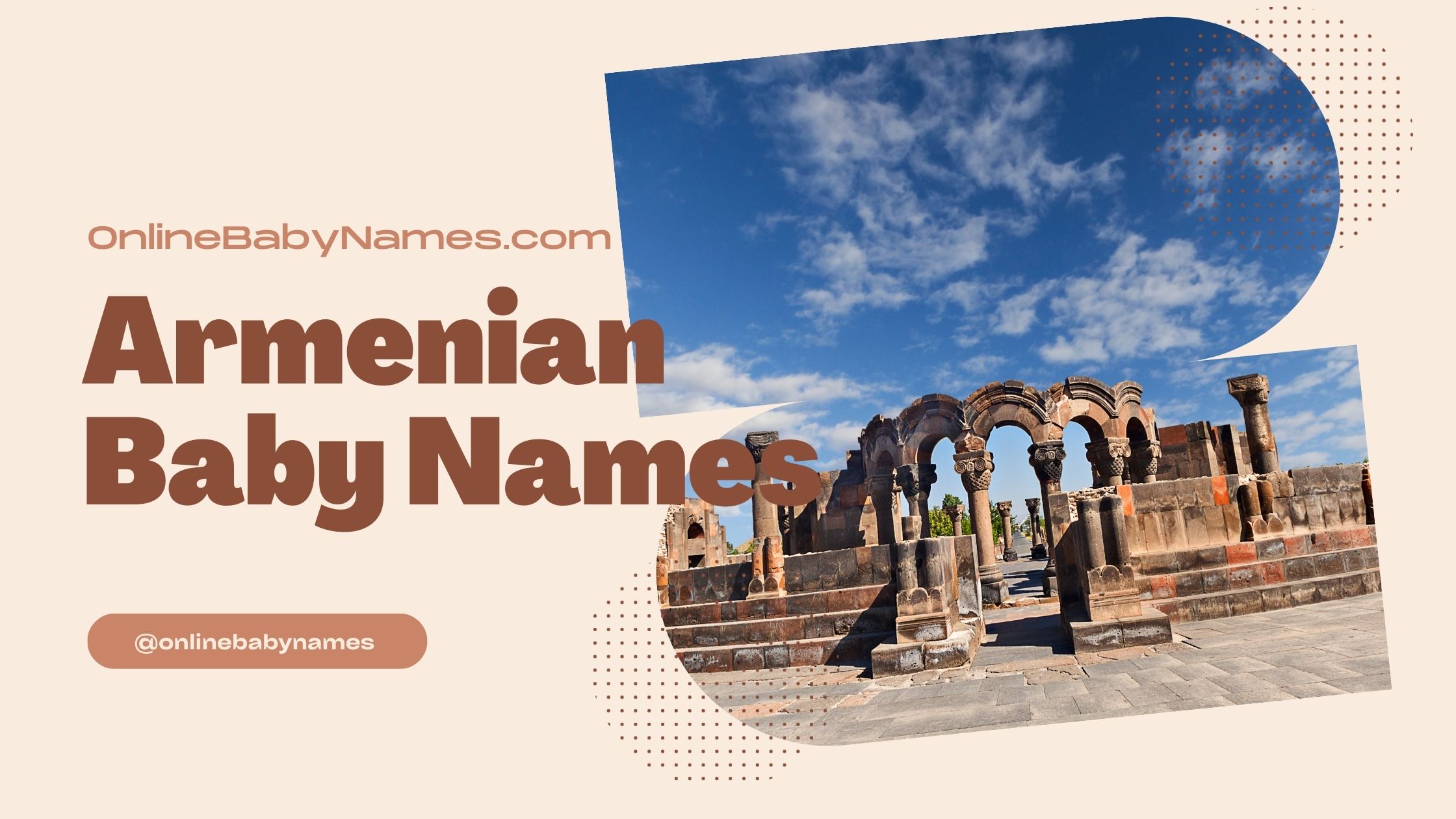
Korean baby names can be a fascinating subject for expecting parents or anyone interested in the rich cultural history of Korea. As an expert on this topic, I’ve noticed that these names often hold deep personal, familial, and cultural meanings. Let’s dive into Korean baby names, their significance, and how you can pick a beautiful name for your little one.
When it comes to choosing a Korean baby name, parents often look for names that have specific character combinations resulting in beautiful meanings, with many taking inspiration from positive attributes and qualities such as happiness, strength, and wisdom. Unlike Western names, Korean names typically consist of a one-syllable family name, followed by a two-syllable given name. This structure provides ample room for creativity and personalization within the naming process.
In recent years, there’s been a trend towards selecting more modern and unique Korean baby names, showing a shift in the cultural landscape. While traditional names remain popular, many parents are seeking names that help their children stand out and express their individuality. As we explore the world of Korean baby names, you’ll discover the incredible variety and depth this naming tradition offers.
The Allure of Korean Baby Names
Korean baby names have an enchanting allure that has captured the attention of parents worldwide. It’s mainly due to their intrinsic beauty and depth of meaning, making them a popular choice for those seeking unique and meaningful names for their children. But what sets Korean names apart from others?
Rich in meaning: Each Korean name carries a wealth of meaning which often signifies attributes, values, or simply the beauty of nature. They’re typically composed of two syllables, each representing a hanja (a Chinese character used in the Korean language) with its own unique meaning. This allows for numerous combinations, resulting in authentic and deeply meaningful names.
Gender-neutral appeal: Many Korean names can be used for both boys and girls, offering versatility and broader appeal. As a result, it’s common for families to embrace gender-neutral names that can easily adapt to their child’s individuality.
Connection to culture: Choosing a Korean name can provide a strong cultural bond, making it an attractive option for those with a Korean heritage or anyone who appreciates the beauty of Korean language and culture. It’s a wonderful way to honor a family’s roots or simply acknowledge a love for Korean culture.
A few examples of popular Korean baby names and their meanings include:
- Jisoo (지수): wisdom and excellence
- Minji (민지): cleverness and knowledge
- Hyunwoo (현우): virtuous and friendly
- Sooyoung (수영): swimming in prosperity
So, why are Korean names such a popular choice for parents? I believe it’s their:
- Rich meanings: These meaningful names allow parents to express their hopes and dreams for their children.
- Gender-neutral nature: The versatility of gender-neutral names can adapt to each child’s unique personality.
- Cultural roots: A Korean name can strengthen the bond to one’s heritage, reinforcing cultural connections.
Overall, Korean baby names offer a sense of depth, versatility, and cultural pride that is increasingly appealing to parents’ worldwide. They present an opportunity to give a child a name with personal meaning, while celebrating an incredibly rich culture.
Korean Name Structure: Understanding the Basics
When it comes to Korean baby names, it’s important to grasp the basics of their structure. Korean names typically consist of three syllables, with the family name (surname) being the first syllable, followed by a two-syllable given name. Here, I’ll be discussing the key components of a Korean name and offer some insights into the naming conventions.
Family names hold great significance in Korean culture. There are about 250 recognized family names in Korea, with a small number being more common than the rest. Some of the most widespread surnames are:
- Kim (김)
- Lee (이/리)
- Park (박)
- Jeong (정)
- Choi (최)
The given name generally consists of two syllables. These syllables can be derived from Korean words or Chinese characters called hanja. Each syllable carries its own distinct meaning. This is what distinguishes Korean given names from other naming systems. The first syllable (middle one in the full three-syllable name) is often shared among siblings, signifying a close bond within the family.
For example, let’s look at the popular given names for boys and girls:
| Gender | Given Names |
|---|---|
| Boys | Ji-hoon (지훈), Min-seok (민석), Seung-hyun (승현) |
| Girls | Ji-eun (지은), Seo-yeon (서연), Yu-jin (유진) |
Selecting the perfect baby name can seem like a daunting task, especially when considering its potential impact on the child’s life. Korean parents often consult saju (사주, a traditional practice that examines a person’s fate or fortune) – to choose a name with auspicious meanings or symbolism. Some also go for names that embody their hopes or dreams for their child’s future.
When writing a Korean name in English, it is usually Romanized for better pronunciation and understanding. For example, the name 이지은 (Lee Ji-eun) is written in the three distinct parts: family name (Lee), first given-name syllable (Ji), and second given-name syllable (Eun).
To sum up, understanding the basic components of a Korean name – family name, shared sibling syllable, and unique given-name syllable – is essential when choosing the perfect Korean baby name. Furthermore, it’s also important to consider the meanings behind the syllables, as they hold great significance in Korean culture.
Popular Traditional Korean Baby Names
When it comes to Korean baby names, the rich cultural history and deep-rooted meaning of both names and words carry a significant impact on parents’ choices. In this section, I’ll discuss some of the popular traditional Korean baby names and their meanings.
Korean baby names often consist of two parts: a surname, which is passed down through generations and shared by family members, and a given name, chosen by the parents. In the traditional Korean naming system, a Hanja (Chinese character) is used for each syllable of the name, resulting in unique and meaningful names. Some families follow a naming convention called Doljanchi, where the names for siblings are derived from the same Hanja character.
Let’s look at some popular traditional Korean baby names for boys and girls:
Boys
- Jin: This popular boy’s name means “precious” or “treasure” and signifies a valuable person.
- Min-jun: Min-jun is a popular combination name, with “Min” meaning “clever” and “Jun” meaning “talented.” Together, this name represents a bright, talented individual.
- Ji-hoon: Ji-hoon carries the meaning of “wisdom” and “merit,” making it a powerful and encouraging name for a young boy.
Girls
- Ji-hye: Ji-hye, a common name for girls, means “wisdom” and “beauty,” representing qualities that parents hope their daughter will possess.
- Seo-yeon: This lovely name for girls means “beautiful” and “graceful,” symbolizing a delicate and elegant person.
- Hae-won: Hae-won is a popular name with the meaning “grace” and “protection,” emphasizing a nurturing and protective spirit.
Some families opt for unisex names, allowing for more freedom in name choice and interpretation. Here are a few popular unisex names in Korea:
- Jae-hwa: Jae-hwa means “respect” and “harmony,” signifying a balance between two qualities.
- Dae-sung: Dae-sung holds the meaning “great” and “accomplishment,” representing success and attainment.
- Young-jae: Young-jae conveys a sense of “prosperity” and “talent,” embodying a life of growth and achievement.
While choosing a name for their child, parents often focus on its meaning and symbolic nature. Names in Korea carry great significance, whether representing the family’s lineage or the qualities they hope their child will embody. As a result, selecting the perfect name is both an important and personal decision.
Traditional Korean baby names provide a connection to the past and a way to honor ancestors, keeping the family’s cultural heritage alive for generations to come.
Trendy Modern Korean Baby Names
Choosing a baby name is an essential part of expecting parents’ journey. For those looking to honor their Korean heritage or simply interested in Korean baby names, you’ve come to the right place. In recent years, there’s been a noticeable shift towards more modern, trendy names in Korea. Let me help you explore some of the popular contemporary choices.
When it comes to modern Korean baby names, they often tend to be short, easy to pronounce, and have a unique charm. One prevalent trend is selecting names that are gender-neutral or unisex. This means that they work well for boys and girls alike, granting flexibility and a sense of equality. Some popular gender-neutral names include:
- SeoJin (서진): Seo means “auspicious,” and Jin means “treasure” or “pearl”
- JaeWon (재원): Jae means “talent” or “skill,” and Won means “origin” or “beginning”
- MinJoo (민주): Min means “gentle” or “sharp,” and Joo means “circumference”
While unisex names are gaining popularity, there are still plenty of trendy gender-specific names that are capturing the hearts of new parents. Let’s start with some modern yet traditional names for boys:
- JiHoo (지후): Ji means “wisdom” or “knowledge,” and Hoo means “protection” or “support”
- TaeYeon (태연): Tae means “to carry,” and Yeon means “soft” or “tender”
As for girls, there’s a growing trend towards names that exude elegance, grace, and confidence. Some beautiful examples include:
- HaeRin (해린): Hae means “ocean” or “sea,” and Rin means “forest” or “grove”
- SoYeon (소연): So means “smile,” and Yeon means “graceful” or “beautiful”
Adventurous parents may be drawn to more Western-inspired names that still maintain a distinctly Korean feel. These names incorporate popular sounds and syllables from both cultures:
- Brian (브라이언): A popular Western name with a Korean twist
- Sophie (소피): This elegant name is derived from the Greek word “wisdom”
Whether you’re looking for something gender-neutral, classic, or adventurous, modern Korean baby names offer a wealth of possibilities. These names can help you connect with your roots or expand your cultural horizons, ensuring that your child’s name reflects their unique identity and upbringing.
Korean Unisex Baby Names
Korean baby names, just like their culture, hold deep meanings, and many parents opt for unisex names to give their children a sense of balance and harmony. Let me share some popular unisex baby names in Korea that beautifully capture this essence.
Jae (재) means “talent” or “wisdom,” highlighting an individual’s innate abilities and intellect. Versatility and adaptability are essential qualities, making this an appropriate choice for both boys and girls.
Min (민) is another appealing option, signifying “quick” or “sharp.” It speaks to a child’s potential capacity for learning and their ability to adapt quickly when faced with challenges.
Soo (수) carries a spiritual and mystique tone, meaning “completion” or “excellence,” bringing the hope of fulfillment and perfection in life. The versatility of Soo makes it an ideal choice for a child of any gender.
Remember that Korean names are usually made of two syllables, and you can be creative with the combinations. For instance: Jae-min (재민), Min-soo (민수), or Soo-jae (수재) can make excellent unisex choices.
Unisex names often have certain popular syllables, as evident in the list below:
- Hyun (현) – Virtuous
- Seong (성) – Completed, achieved
- Ji (지) – Wisdom, intellect
- Hae (해) – Sea, ocean
- Tae (태) – Big, great
These syllables can be paired with other meaningful syllables to create a variety of personalized unisex names. When selecting a name, think about the qualities you desire for your child, and remember that names hold significant power in shaping a person’s identity.
Here are some more examples of unisex Korean baby names crafted by combining some of these syllables:
- Hyun-seong (현성) – Virtuous and completed or achieved
- Seong-ji (성지) – Completed or achieved wisdom
- Ji-hae (지해) – Intellectual sea or wisdom of the oceans
- Hae-tae (해태) – Great ocean
Choosing a beautiful and meaningful unisex Korean baby name is an incredible way to honor your child and your Korean heritage. As I’ve shared, the options are vast and diverse, allowing you to create the perfect name that resonates with your personal story and wishes for your little one.
Korean Baby Names Inspired by Nature
Korean baby names inspired by nature are becoming increasingly popular, as more parents seek meaningful names that evoke a sense of tranquility and connection to the natural world. If you’re looking for unique and meaningful names for your baby, check out these lovely Korean nature-inspired names.
Boys:
- San-산 (Mountain): A strong name symbolizing stability and strength, much like the mountains that dominate the Korean landscape.
- Ha-neul-하늘 (Sky): Ha-neul is a gender-neutral name that embraces the vastness and beauty of the sky.
- Jin-ho-진호 (Pearl Lake): This charming name represents the purity and tranquility of a serene lake.
Girls:
- So-하 (Small bird): A delicate and elegant name for a girl, representing gracefulness and freedom found in birds.
- Hae-won-해원 (Sea and Garden): Hae-won is a beautiful and sophisticated name that brings together the sea’s endless depth and the nurturing aspects of a flourishing garden.
- Bom-봄 (Spring): A lovely and unmistakable name signifying renewal, rebirth, and the arrival of warm and colorful days.
Below is a list of other nature-inspired names suitable for both boys and girls:
| Name | Translation | Gender |
|---|---|---|
| Yu-ri-유리 | Glass | Unisex |
| Ji-hoo-지후 | Wise and kind | Unisex |
| Nari-나리 | A lily | Girl |
| Il-seong-일성 | Halo around the sun or moon | Boy |
There are a few key considerations when choosing a Korean nature-inspired name for your baby:
- Look for names with a clear and positive meaning: Names that will inspire your child and resonate with your family’s values.
- Consider compatibility with the English language: It’s beneficial if the chosen name is easily pronounceable and spelled in English, as this can lead to fewer pronunciation issues and easier integration into different cultures.
- Ensure there is a good balance in the name: A balanced Korean name typically consists of three syllables, including the family name. It’s essential to have harmony between the family name and the chosen first name.
To find the perfect Korean nature-inspired baby name, take the time to research and learn about the meanings and origins behind each name. By doing so, you’ll discover a name that holds a special place in your heart, reflecting your child’s unique personality and your connection to the natural world.
Choosing the Perfect Korean Baby Name
When it comes to picking the perfect Korean baby name for your little one, there are a few factors worth considering. It’s essential to find a name that’s both unique and suitable for your child. Here, I’ll share some tips and suggestions on finding the best name.
First and foremost, understanding the structure of Korean names is crucial. Korean names typically consist of three syllables – the family name, followed by a two-syllable given name. The family name is usually one syllable, while each of the given name’s syllables has a separate meaning.
Keep in mind the importance of Korean name meanings. When creating your child’s given name, select syllables that hold positive and auspicious meanings. Many Korean names incorporate virtues, elements, or nature-inspired terms like:
- Haneul (하늘) – Sky
- Areum (아름) – Beauty
- Jiho (지호) – Wisdom and Protection
To assist you in finding an authentic Korean name, consider researching popular Korean names from recent years or traditional names with cultural significance. Some famous choices include:
- Jiwon (지원) – Felicity, Support
- Minsu (민수) – Clever, Intelligent
- Eunji (은지) – Silver, Wisdom
Name trends can also guide you in finding a fitting moniker. Here are the top three Korean baby names in recent years for boys and girls:
| Gender | #1 | #2 | #3 |
|---|---|---|---|
| Boys | Seojun (서준) | Minjun (민준) | Siwoo (시우) |
| Girls | Seoyeon (서연) | Jiwon (지원) | Jiwoo (지우) |
Don’t forget to run the name by friends or family members, particularly those with Korean language backgrounds. They can offer insights into meanings and ideas that you might not have considered.
Finally, ensure the chosen name sounds pleasant and is easily pronounceable. While this step might seem trivial, it can make a significant impact on your child’s experience growing up with a Korean name.
In summary, focusing on the structure, meaning, and aesthetics of Korean names can work wonders in helping you choose the ideal name for your child. With a bit of research and thoughtful consideration, you’ll surely find a name that shines.
Korean Naming Ceremonies and Traditions
I’ve always been fascinated by the meaningful and beautiful Korean baby names that are rich in history and culture. Korean naming ceremonies and traditions play a significant role in the lives of Korean families. Let’s dive deeper into these customs to appreciate their uniqueness and significance.
Baek Il (백일) is a significant Korean tradition that marks the 100th day after a baby’s birth. It’s a celebratory occasion that has historical roots, and was initially meant as a protection ritual, given the high infant mortality rates in the past. Today, it symbolizes a baby’s growth and health. Families gather for a feast, exchanging gifts, and participating in customs like:
- Preparing rice cakes, a symbol of purity and longevity
- Offering prayers and bowing rituals for the baby’s well-being
Doljanchi (돌잔치) is another important milestone in a Korean child’s life. It’s the first birthday celebration, and it’s a grand event for families. Parents prepare special food and adorn the venue with colorful decorations. The highlight of this event is the doljabi (돌잡이) ceremony, which involves placing several items in front of the baby. These items signify different paths and fortunes for the child’s future. For example:
- Pen or brush: symbolizes academic success
- Money or gold: represents wealth and prosperity
- String: signifies longevity and health
- Musical instrument: indicates a talent for music
Guests watch intently as the baby selects an item, which is believed to predict the child’s future. This moment is filled with excitement and anticipation.
The Korean naming process, or ireum jeoteurigi (이름 젓들이기), often has a deep connection to family lineages and beliefs. It’s common for Koreans to have a generational name – a syllable shared by all members of the same generation in the family. Korean names traditionally consist of a one-syllable family name followed by a two-syllable given name. Each syllable conveys a specific meaning, often related to nature, virtues, or aspirations.
The involvement of elders in the naming process is a sign of respect for their wisdom. Some families consult professional name experts, known as semyeongga (세명가), who take into account factors like astrology, history, and the child’s birth details to craft a meaningful and auspicious name.
In conclusion, Korean baby names and traditions exhibit the culture’s deep respect for lineage, unity, and aspirations. These practices add depth and significance to the naming process, creating an extraordinary bond between the child and their heritage.
Tips for Selecting Meaningful Korean Names
Selecting a Korean baby name is an important task for parents, as names hold a powerful significance in Korean culture. I’ve compiled a list of tips that can help you choose a meaningful name for your little one.
Understand Korean name structure: Korean names consist of a one-syllable family name, usually placed first, and a two-syllable given name. For example, if we take the name Kim Yoo-jin, “Kim” is the family surname and “Yoo-jin” is the given name.
Consider name meanings: Korean given names carry specific meanings, often derived from the meanings of the individual syllables. Additionally, Korean names are often influenced by Hanja, the Chinese characters used in Korean writing. For instance, “Yoo” could mean “abundant” and “jin” might mean “precious”. It’s a good idea to research the meanings of potential names to choose one with positive connotations.
Choose a balanced name: In Korean culture, it’s crucial for a name to have a harmonious blend of consonants and vowels. When selecting a name, consider how the syllables sound together and balance each other.
Here are some factors to keep in mind when selecting a Korean baby name:
- Blend of traditional and modern: Some parents prefer sticking to traditional names while others opt for trendy or modern names. Try to find a balance between the two to ensure your child’s name remains timeless yet unique.
- Popularity: Be aware of popular names and trends. While trendy names might be appealing, they may also lead to confusion if too many kids share the same name. Consider choosing a name that stands out from the crowd.
- Names that suit a global environment: With global communities becoming more interconnected, it’s smart to select a name that is easy to pronounce and remember for people who are not familiar with Korean culture.
Some popular Korean baby names include:
- For boys: Min-jun (민준), Ji-hoon (지훈), Jun-seo (준서), Seo-jin (서진), Ji-won (지원)
- For girls: Seo-yun (서윤), Ji-woo (지우), Min-seo (민서), Hae-won (해원), Ji-yoo (지유)
Finally, when selecting a Korean baby name, it’s essential to involve family members and take their opinions into account, as naming a baby is often a family affair in Korea. By considering all these factors, you’ll choose a meaningful and unique name that both your child and your family will be proud of.
In Conclusion: Embracing the Beauty of Korean Baby Names
So, what’s the beauty of Korean baby names? I’ve covered many topics in this article to provide a comprehensive understanding of the origin, meanings, variations, and cultural significance associated with them. I hope that you feel more informed and are able to appreciate the importance of these unique names.
Korean baby names reflect the culture’s love for nature, virtues, and family. They’re often given with great care, ensuring the name represents the individual’s character and the family’s history. This approach underscores the significant role names play in Korean society, serving as a constant reminder of one’s roots, traits, aspirations, and personal identity.
I’ve covered popular name variations, including those featuring Sino-Korean characters and Native Korean words. Knowing the difference between these types can help you understand the deeper layers of meaning behind each name:
- Sino-Korean names: Derived from Chinese characters, they bring an ancient touch and cultural connection.
- Native Korean names: Expressing Korea’s language and history, they offer a glimpse into indigenous Korean culture.
Moreover, I’ve explored unique naming customs and some of the most popular names in South Korea. To recap, here are some favorites for boys and girls:
- Popular Korean boy names: Ji-hoon, Jung-hoon, Seung-hoon, Jae-hoon, Chae-won, and Ji-won.
- Popular Korean girl names: Eun, Seo-yeon, Soo-min, Ji-yeon, Ha-eun, and Ji-woo.
Korean names hold a deeper meaning to both those who carry them and the families who give them. When choosing a Korean baby name, it’s important to understand its significance, connotations, and potential implications. A thoughtfully selected name can bring positive associations, good fortune, and a strong connection to one’s heritage.
So, if you’re choosing a name for your baby, I hope my insights into Korean baby names have been both educational and inspiring. By recognizing the beauty of these names, you can embrace the cultural richness and depth they offer. In the end, the name you choose for your child will stay with them for a lifetime, shaping their identity and leaving a lasting impression in the hearts and minds of those who know them.















